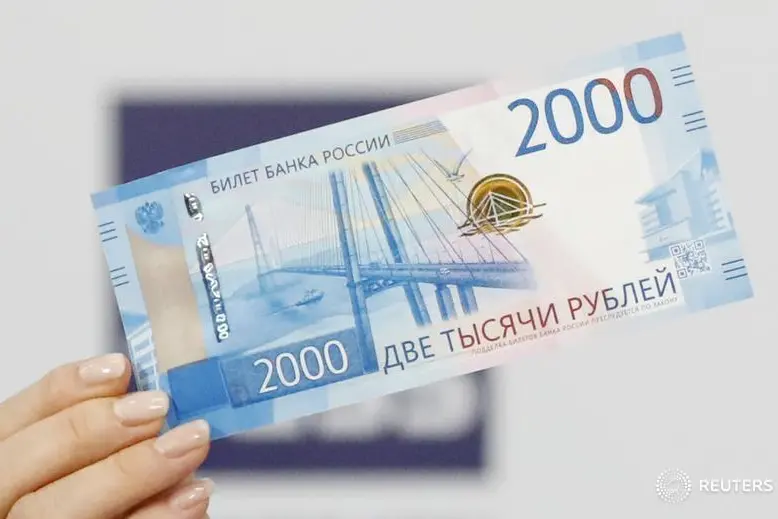PHOTO
The Russian rouble strengthened to a more than one-month high in Moscow trade on Tuesday, firming past 88 to the dollar, while stocks regained some ground on the fourth session of resumed trading after a near month-long suspension.
The Russian market is gradually reopening after a suspension caused by sweeping Western sanctions that followed the beginning of what Russia calls "a special operation" in Ukraine on Feb. 24.
At 0736 GMT, the rouble was 2% stronger against the dollar at 87.98, earlier touching 87.40, its strongest since Feb. 28. It had lost 0.2% to trade at 96.80 versus the euro after briefly clipping a one-month high.
Russian stocks are trading in curtailed sessions and with various restrictions, including a ban on short-selling. Non-residents are barred from selling stocks and OFZ rouble bonds until April 1.
The dollar-denominated RTS index was up 9.5% to 900.7 points. The rouble-based MOEX Russian index was 3.6% higher, at 2,517.5 points.
Evgeny Suvorov, economist at CentroCredit Bank, pointed out that the entire capitalisation of the MOEX index is now about six times smaller than the market capitalisation of U.S. tech giant Apple.
Flag carrier Aeroflot, one of the most volatile securities since the reopening, was up 5.7%, while sanctioned state lender VTB jumped 4.8%.
The Moscow-listed shares and depositary receipts of some companies with primary listings abroad returned to trading on Tuesday.
Nasdaq-listed tech giant Yandex saw its Moscow shares leap 8.6%, while depositary receipts in London-listed retailer Fix Price soared about 30%.
Russia's finance ministry said on Tuesday it had fully paid a coupon on its Eurobond due in 2035, its third payout since unprecedented Western sanctions called Russia's ability to service foreign currency debt into question.
Yields on Russia's benchmark 10-year OFZ treasury bonds dropped to 13.43%, moving further away from last week's record high of 19.74%, which is just below the central bank's key interest rate, but still at levels last seen in early 2015.
Yields move inversely to prices.
(Reporting by Reuters; Editing by Robert Birsel)





















